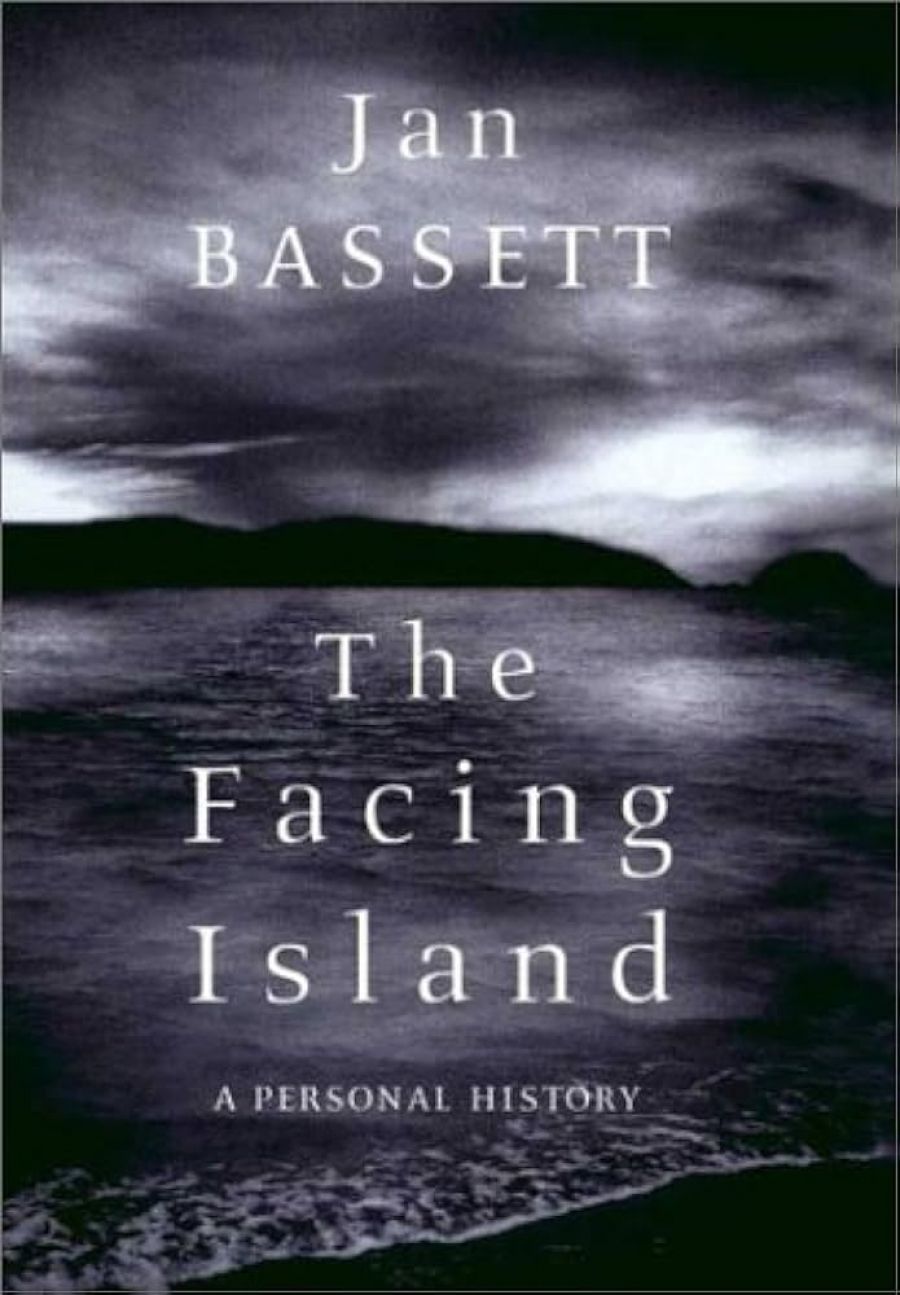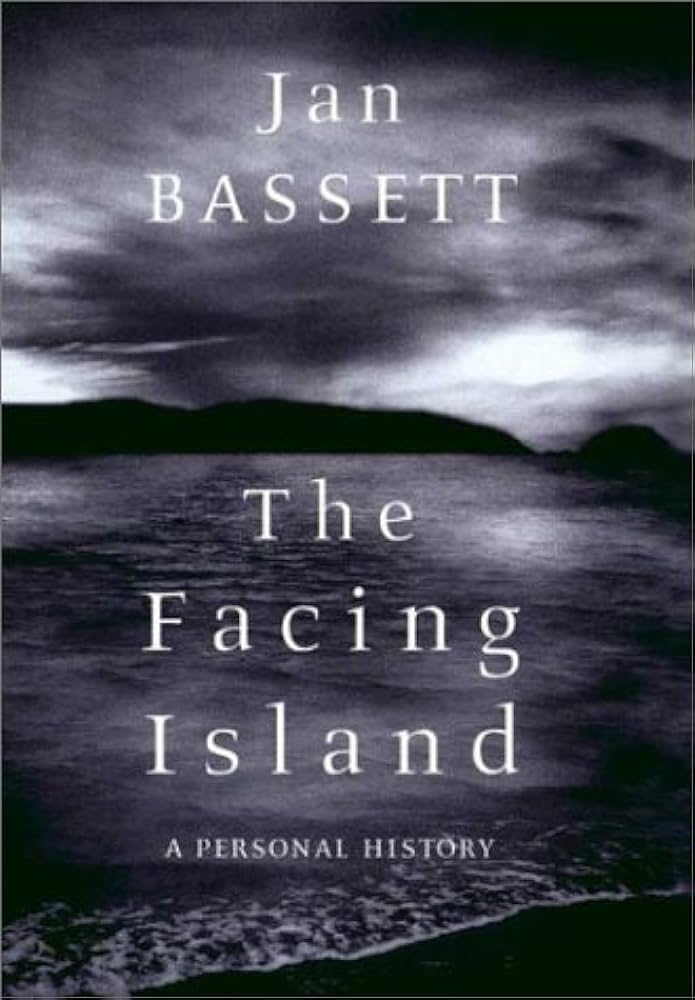
- Free Article: No
- Contents Category: Memoirs
- Review Article: Yes
- Article Title: The Coda in the Chiffonier
- Online Only: No
- Custom Highlight Text:
The facing island in Jan Bassett’s memoir is Phillip Island, where her maternal grandparents had a dairy farm and where it seems she was most emotionally at home. Summer holidays there as a child in the 1960s, in the midst of her grandmother’s extended family and surrounded by familiar tokens of past decades reaching as far back as the early 1900s, undoubtedly sparked her lifelong commitment to Australian history. The title, taken from Peter Rose’s poem ‘Balnarring Beach’ (‘The facing island, a mortal blue, / beckons, intensifies, vanishes’), could hardly be more appropriate, compressing in a few words much of the emotional intensity of Bassett’s autobiographical last journey.
- Book 1 Title: The Facing Island
- Book 1 Subtitle: A Personal History
- Book 1 Biblio: MUP, $34.95pb, 196pp, 0 522 85029 4
- Book 1 Cover Small (400 x 600):

- Book 1 Cover (800 x 1200):

Inheriting her grandmother’s chiffonier at the age of thirteen, Janice Lyons, as she then was, discovered in a secret compartment a bundle of letters from a young New Zealand soldier named Wilson Tong, then serving in France. Tong had placed a letter, headed ‘Somewhere in France’ and dated August 1916, in a bottle and thrown it overboard en route to Europe. Retrieved by Edie, perhaps when she was wandering along a beach at Ventnor, the letter had been the start of a correspondence that lasted until 1919. Edie’s replies did not survive, although Bassett retrieves something of her response from Tong’s correspondence, and speculates about other possibilities.
Wilson Tong’s letters become the spine of the narrative, supporting in part Bassett’s extensive conjectures about the relative real-life situations and feelings of the correspondents. These are always informed by her extensive reading and her previous research on World War I, as well as other wars and their impact on Australia. Her study of Australian Army nursing from the Boer War to the Gulf War, Guns and Brooches (1992) and her anthology As We Wave You Goodbye: Australian Women and War (1998) are particularly fruitful resources. But, throughout the narrative, her sense of history fills out the bald facts of the personal stories she deals with. Nothing could be more bald or understated than Tong’s descriptions of his experiences in the trenches. He has ‘a lively time’ when the German guns are busy; a wound in the leg, which puts him into hospital for a month, is mostly annoying because he ‘did not get to Blighty with it, worse luck’; suffering from trench feet is merely mentioned in passing; snow will fall soon ‘and then for some fun’; or his battalion was first into Messines ‘and it was some rough shop’. It’s interesting that this laconic understatement was so typical of letters and even diaries written by men at the front in World War I, and that it continued in popular war writing after 1918, notwithstanding Wilfred Owen and Siegfried Sassoon. Equally interesting are Bassett’s comments on the fact that Tong’s letters fail to mention the Armistice, and that, according to her research, that silence is a strange characteristic both of men’s and women’s reminiscences of the war as well as their immediate responses. Meanwhile, in The Facing Island, Bassett fills in the horrific details of mustard gas and trench feet that Tong leaves out.
Constantly moving from individual lives to the more general social context, Bassett subtly interweaves her research discoveries with the historical circumstances of Tong’s life at the front and her grandmother’s life on Phillip Island. We learn, for instance, that, by mid1920, 14,000 women had married or become engaged to Australian soldiers serving overseas, and that some found other wives waiting on their ‘husband’s’ home shores as well as other unexpected problems. The piano’s place at the family farm prompts reflections on the ubiquitous presence of pianos in Australia before 1914, and the sort of music that was played. Recalling her grandfather’s German origin, Bassett reflects on the general experiences of Germans in Australia during the war.
But The Facing Island is also an autobiography. At one level, the narrative belongs to a small traditional stream of women’s writing. A relational narrative, it is written partly in the form of an imagined correspondence with the beloved grandmother, speculating mainly on the grandmother’s life but including her own similar or dissimilar experiences and feelings. If the grandmother is partly an enigma, refusing, for instance, to send Tong a photograph of herself and even cutting out her own face from a group picture, then Bassett, as she contemplates her younger ‘ice maiden’ self, and her habitual pattern of keeping her friends in separate compartments, is also an acknowledged enigma. Meanwhile, countering the emotional reserve of the past is a poignant, candid account of her mortal struggle, the terrible toll already exacted by cancer at the time of writing, and its still more terrible costs acknowledged in the near future.
Wilson Tong was not killed at the front, but his life was probably irretrievably damaged there, and his suffering from chemical warfare must have approximated Bassett’s with chemotherapy. Bassett clearly perceives his survival and that of others like him as at least as ‘unlucky’ as the fates of those who died. And it is one of the ironies of her skills as an historian that she discovers her grandmother’s grim episode of secret suffering in 1919, which might have been the clue to her later stoic reserve.
The connections are not explicit but, as with some of the poetry that Bassett includes in her narrative, the effects are both subtle and powerful. Early death is a constant presence in this memoir, not just Bassett’s own imminent fate, but those of friends, and of course all the deaths brought about by war and pestilence, which have been a part of her intellectual journey. Faced with dignity but with controlled anger at their waste, these deaths contrast with those of relatives who lived peacefully into old age. As Peter Rose comments in his Foreword:
War ... absorbed and moved Jan, just as it haunted her mentor, Lloyd Robson … What Wilson Tong saw in those trenches on the Western Front, and her grandmother’s distant empathy, helped Jan to summarise her lifelong work. That secret compartment had provided her with a kind of coda.
Published with the usual care by Melbourne University Press, The Facing Island includes photographs, a useful index and numerous notes. It is a fitting tribute to a remarkable woman who, regretfully, failed to see her memoir in its published form.


Comments powered by CComment